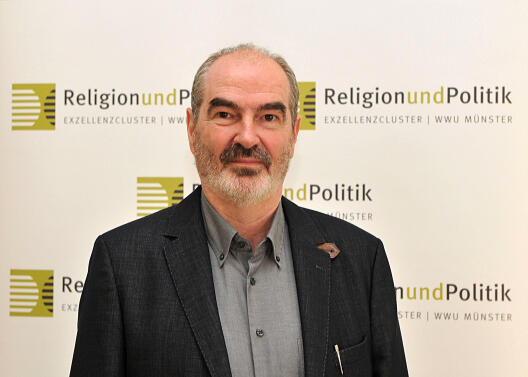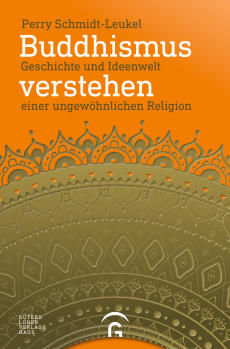“Buddhism is not a pop religion”
Scholar of religious studies Perry Schmidt-Leukel of the Cluster of Excellence presents a comprehensive introduction to the history and the present of Buddhism – author refutes numerous Western clichés – “take off rose-coloured glasses” – Buddhism was and is less peaceful than thought – not a religion “without god” – discrimination against women – environmental protection ambivalent – tense relationship towards Western principles such as liberalism and human rights

Press release of the Cluster of Excellence of 4 July 2017
According to scholars of religious studies Western observers see Buddhism too much through “rose-coloured glasses”. “Whereas it was perceived as pessimistic and nihilistic before and to a certain degree still today, numerous clichés now prevail of Buddhism as an easy pop religion, peaceable and tolerant, as a spirituality without dogmas and beliefs, even without god,” the scholar of religious studies and Anglican theologian Prof. Dr. Perry Schmidt-Leukel of the University of Münster’s Cluster of Excellence “Religion and Politics“ describes in his new introductory volume “Buddhismus verstehen (Understanding Buddhism)”, now published in German by Gütersloher Verlagshaus. Buddhism is often not even considered as a religion in the West, but “as a psychology of wisdom, a lifestyle or a stylish worldview, particularly suited for the somewhat slackened, but wealthy, post-modern intellectual.” This may also be attributed to the dissatisfaction with ecclesial forms of Christianity, but has nothing to do with the reality of today’s Asian Buddhism and classic Buddhism, the scholar explains, who does research on the relationship of the world religions towards each other at the Cluster of Excellence.
The introductory volume covers two and a half thousand years of the history and the mindscape of Buddhism. The scholar of religious studies refutes numerous older and newer clichés by referring to a number of Buddhist sources as well as historical and theological comments. Buddhism is not simply a “religion without god, just because it does not circle around a creator deity”. To this day, people resort to violence in its name. Important Buddhist tendencies decline Western principles such as liberalism, individualism, human rights and democracy, he continues. The fact that for a long time women were discriminated against in a similar way as in other world religions also differs from the positive image in the West. In its principles, Buddhism also puts the human being before nature and thus is far from always being “nature-friendly” as claimed by the modern eco-Buddhism. “After all, the variety of tendencies and regional manifestations of Buddhism as a world religion is widely unknown in the West,” says Schmidt-Leukel. “It is rather that each religion has an enormous spectrum of inner-religious, sometimes contradicting manifestations.”
Buddhism and politics
In the volume subtitled “The history and mindscape of an unusual religion”, the academic outlines the development of Buddhist beliefs, from the basic teachings of early Buddhism to its manifold further developments. He also examines the relationship between Buddhism and politics as well as Buddhism and modern age in many facets. He explains the significance of Buddha Siddhārtha Gautama in the course of time, of meditation, ethics and community, of the teachings of Mahāyāna Buddhism, Tantrism as well as Chinese and Japanese Buddhism. A particular challenge is the attitude of Buddhism towards the multiplicity of religions in many countries, says Schmidt-Leukel. “Just like all other religions, Buddhism ought to rethink its claim to be superior to other religions.”
The book was first published in English (“Understanding Buddhism”) by Dunedin Academic Press in Edinburgh. The work has been praised widely, for example by the British religious philosopher John Hick and the Buddhist “Vipassanaforum” which called the volume one of the best introductions to Buddhism. At the Cluster of Excellence Prof. Dr. Perry Schmidt-Leukel heads the project C2-16 “Interreligious Theology”. He has published many works on this subject. Recently a compendium on the relationship between Buddhists and Christians in Asian countries marked by Buddhism, “Buddhist-Christian Relations in Asia ”, was published in English by EOS Editions in Sankt Ottilien. (dak/vvm)


